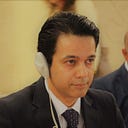Why the Afghan Government does not have a Seat at the Table in the America-Taliban Peace Talks
The obvious reason is that the participation of the Government of Afghanistan is counterproductive and will lead to the failure of talks before they even start. Taliban do not recognize the Government and the Government does not accept Taliban’s legitimacy as an Afghan party.
Ending the war is an American urgency because American men and material are expended. The Afghan Government does not have this urgency, or, if it does, it sees its protection and survival as an exclusive American responsibility. In other words, the Government of Afghanistan does not feel responsible for prolonging the war. It shifts the responsibility and blame to the United States and the Taliban.
But there are other unstated reasons for excluding the Afghan Government. Washington has not articulated these additional reasons but logic dictates that American policymakers in the US government and military must have pondered them before deciding to talk directly to Taliban and exclude Kabul from direct participation in the early stages of the peace process.
Some of these reasons could include:
- Afghan Government Failure | For eighteen years, Kabul has failed to pacify the Taliban and end the war. Afghan politicians failed in ending the war through political and military action. Hence, Washington has to intervene and do something about it.
- Afghan Government Intentions | Does Kabul really want to end the war? It certainly does want to end the war by defeating the Taliban, but not through negotiations, unless those negotiations involve the Taliban offering total and unconditional surrender. This maximalist position of the government in Kabul is inflexible and unrealistic.
- Permanent War | American officials suspect that some Afghan government officials do not mind living with a permanent, endless war. Things are going good for these Afghan officials. They live well, many have enriched themselves, and their salaries and security are paid for by American taxpayer money. These Afghan officials, including both politicians and warlords, have no incentive to talk to the Taliban.
- Afghan Police & Army | In eighteen years, the Government of Afghanistan has failed in building a military that can decisively erode or end Taliban’s ability to challenge the government. In fact, the opposite is true. The Taliban has steadily increased the area of Afghanistan it controls. The US and NATO delivered a completely liberated Afghanistan to Afghan politicians and they steadily lost territory to the Taliban every year since 2002.
- Afghan Warlordism | The current government in Kabul is basically drawn from Afghan factions that operated as the Northern Alliance and fought the Taliban for the control of Kabul in the 1990s. As sworn enemies, these politicians are largely opposed to any peace deal with the Taliban.
- Regional Proxy War | Some elements in Kabul act as proxies of regional states, especially India, Iran and possibly Russia. There are strong indications that some of the Afghan proxies are actually fulfilling the will and agenda of their patrons in executing a war of attrition against the United States, and also against Pakistan, the key party involved in facilitating US-Taliban talks. In other words, Washington is paying to protect some elements in Afghan government that help regional states wage a war of attrition against the United States.
- Future of Afghan Government | Despite keeping the Afghan Government out of the US-Taliban talks, this step is likely temporary. Afghan government officials are expected to join the peace talks in later stages. Just as there can be no peace in Afghanistan without including the Taliban, the same is true for Afghan government officials. Inclusive reconciliation is key to ending the Afghan war.
Originally published at www.quora.com.
